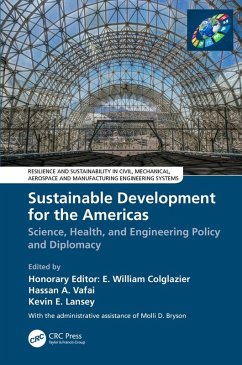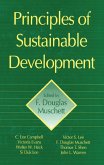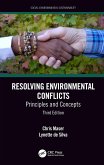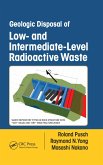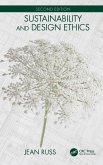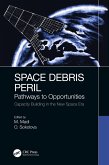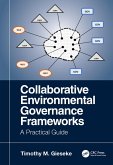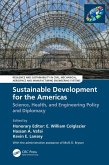Sustainable Development for the Americas (eBook, ePUB)
Science, Health, and Engineering Policy and Diplomacy
Redaktion: Colglazier, E. William; Bryson, Molli D.; Lansey, Kevin E.; Vafai, Hassan A.
54,95 €
54,95 €
inkl. MwSt.
Sofort per Download lieferbar

27 °P sammeln
54,95 €
Als Download kaufen

54,95 €
inkl. MwSt.
Sofort per Download lieferbar

27 °P sammeln
Jetzt verschenken
Alle Infos zum eBook verschenken
54,95 €
inkl. MwSt.
Sofort per Download lieferbar
Alle Infos zum eBook verschenken

27 °P sammeln
Sustainable Development for the Americas (eBook, ePUB)
Science, Health, and Engineering Policy and Diplomacy
Redaktion: Colglazier, E. William; Bryson, Molli D.; Lansey, Kevin E.; Vafai, Hassan A.
- Format: ePub
- Merkliste
- Auf die Merkliste
- Bewerten Bewerten
- Teilen
- Produkt teilen
- Produkterinnerung
- Produkterinnerung

Bitte loggen Sie sich zunächst in Ihr Kundenkonto ein oder registrieren Sie sich bei
bücher.de, um das eBook-Abo tolino select nutzen zu können.
Hier können Sie sich einloggen
Hier können Sie sich einloggen
Sie sind bereits eingeloggt. Klicken Sie auf 2. tolino select Abo, um fortzufahren.

Bitte loggen Sie sich zunächst in Ihr Kundenkonto ein oder registrieren Sie sich bei bücher.de, um das eBook-Abo tolino select nutzen zu können.
This book explores the importance of sustained international scientific cooperation, building community resilience, and the role of political will in sustainability and diplomacy.
- Geräte: eReader
- mit Kopierschutz
- eBook Hilfe
Andere Kunden interessierten sich auch für
![Principles of Sustainable Development (eBook, ePUB) Principles of Sustainable Development (eBook, ePUB)]() F. Douglas MuschettPrinciples of Sustainable Development (eBook, ePUB)61,95 €
F. Douglas MuschettPrinciples of Sustainable Development (eBook, ePUB)61,95 €![Resolving Environmental Conflicts (eBook, ePUB) Resolving Environmental Conflicts (eBook, ePUB)]() Chris MaserResolving Environmental Conflicts (eBook, ePUB)46,95 €
Chris MaserResolving Environmental Conflicts (eBook, ePUB)46,95 €![Geologic Disposal of Low- and Intermediate-Level Radioactive Waste (eBook, ePUB) Geologic Disposal of Low- and Intermediate-Level Radioactive Waste (eBook, ePUB)]() Roland PuschGeologic Disposal of Low- and Intermediate-Level Radioactive Waste (eBook, ePUB)192,95 €
Roland PuschGeologic Disposal of Low- and Intermediate-Level Radioactive Waste (eBook, ePUB)192,95 €![Sustainability and Design Ethics, Second Edition (eBook, ePUB) Sustainability and Design Ethics, Second Edition (eBook, ePUB)]() Jean RussSustainability and Design Ethics, Second Edition (eBook, ePUB)75,95 €
Jean RussSustainability and Design Ethics, Second Edition (eBook, ePUB)75,95 €![Space Debris Peril (eBook, ePUB) Space Debris Peril (eBook, ePUB)]() Space Debris Peril (eBook, ePUB)52,95 €
Space Debris Peril (eBook, ePUB)52,95 €![Collaborative Environmental Governance Frameworks (eBook, ePUB) Collaborative Environmental Governance Frameworks (eBook, ePUB)]() Timothy GiesekeCollaborative Environmental Governance Frameworks (eBook, ePUB)79,95 €
Timothy GiesekeCollaborative Environmental Governance Frameworks (eBook, ePUB)79,95 €![Sustainable Development for the Americas (eBook, PDF) Sustainable Development for the Americas (eBook, PDF)]() Sustainable Development for the Americas (eBook, PDF)54,95 €
Sustainable Development for the Americas (eBook, PDF)54,95 €-
-
-
This book explores the importance of sustained international scientific cooperation, building community resilience, and the role of political will in sustainability and diplomacy.
Dieser Download kann aus rechtlichen Gründen nur mit Rechnungsadresse in A, B, BG, CY, CZ, D, DK, EW, E, FIN, F, GR, HR, H, IRL, I, LT, L, LR, M, NL, PL, P, R, S, SLO, SK ausgeliefert werden.
Produktdetails
- Produktdetails
- Verlag: Taylor & Francis eBooks
- Seitenzahl: 394
- Erscheinungstermin: 14. Dezember 2021
- Englisch
- ISBN-13: 9781000468038
- Artikelnr.: 62842991
- Verlag: Taylor & Francis eBooks
- Seitenzahl: 394
- Erscheinungstermin: 14. Dezember 2021
- Englisch
- ISBN-13: 9781000468038
- Artikelnr.: 62842991
- Herstellerkennzeichnung Die Herstellerinformationen sind derzeit nicht verfügbar.
Honorary Editor E. William Colglazier is Editor-in-Chief of Science & Diplomacy and Senior Scholar in the Center for Science Diplomacy at the American Association for Advancement of Science (AAAS). He works there to advance knowledge and practice on science policy and science diplomacy and to support international collaboration in science and technology. From 2016 to 2018 he co-chaired the 10-Member Group appointed by the UN Secretary General to advise on science, technology, and innovation for achieving the 17 Sustainable Development Goals of the UN 2030 Agenda. He served as the Science and Technology Adviser to the Secretary of State from 2011 to 2014. As Executive Officer of the National Academy of Sciences and National Research Council for seventeen years, he oversaw the studies that provide independent, objective scientific advice on public policy issues. He received his Ph.D. in theoretical physics from the California Institute of Technology in 1971, and subsequently worked at the Stanford Linear Accelerator Center, the Institute for Advanced Study in Princeton, the Center for Science and International Affairs at Harvard's Kennedy School of Government, and the University of Tennessee. While at Harvard, he also served as Associate Director of the Program in Science, Technology, and Humanism of the Aspen Institute. As Professor of Physics in Tennessee, he directed research centers dealing with environmental, energy, and waste management issues. In 1976-77, he was an AAAS Congressional Science Fellow. In 2015 Colglazier received from the American Physical Society the Joseph A. Burton Forum Award for "outstanding contributions to the public understanding or resolution of issues involving the interface of physics and society" and from the Government of Japan the Order of the Rising Sun, Gold Rays with Neck Ribbon, for "contributing to science and technology exchange and mutual understanding between Japan and the United States." Corresponding Editor Hassan A. Vafai has held position of professorship in engineering at different universities including Sharif University of Technology, Washington State University, and The University of Arizona. His research interests include the field of structural mechanics, structural dynamics offshore structured earthquake engineering. He was founder and editor-in-chief of Scientia, international journal of science and technology. Throughout his careers, he has received numerous awards for his contribution to the promotion of science and technology worldwide including being elected "Eternal Spirit in Science," the highest honor by the National Academy of Sciences of Iran conferred on outstanding scientists; an honorary doctorate by the Senatus Academicus of Moscow Region State Institution of Higher Education; and the "Order of Palm Academicques" awarded by the Ministry of Education, Research and Technology of France. Co-Editor Kevin E. Lansey is professor of the Department of Civil Engineering and Engineering Mechanics. His interests are related to water supply planning, water-energy links, and water distribution systems design, operation, and monitoring. He has published over 100 journal articles, 10 book chapters, and two textbooks in those areas. For his contributions, he was awarded the ASCE Huber Civil Engineering Research Prize for Young Researchers in 2002. With the Assistance of Molli D. Bryson currently serves as the Environmental Program Coordinator for the Udall Center for Studies in Public Policy at The University of Arizona. Since earning her bachelor's degree in English, her professional interest has centered around science communications, especially in the realm of environmental diplomacy. She coordinates communications for the department, including website management, marketing, and cataloguing publications, as well as assisting in coordinating an array of events ranging from internal lecture series to large, international conferences. Her experience working with prestigious individuals from around the world has guided her career toward the subject of science editing and researching how best to communicate science to the public.
Overcoming Social, Economic, and Environmental Challenges for the Americas
and the World: How Can Science, Technology, and Innovation Help Find
Solutions? Sustaining International Scientific Cooperation Among Nations:
Why It Matters. Foundations of Science Diplomacy. Transition to
Sustainability. International Adaptation and Resilience. Hydrodiplomacy.
Science Diplomacy in Education. Conclusions and Resolutions.
and the World: How Can Science, Technology, and Innovation Help Find
Solutions? Sustaining International Scientific Cooperation Among Nations:
Why It Matters. Foundations of Science Diplomacy. Transition to
Sustainability. International Adaptation and Resilience. Hydrodiplomacy.
Science Diplomacy in Education. Conclusions and Resolutions.
Overcoming Social, Economic, and Environmental Challenges for the Americas
and the World: How Can Science, Technology, and Innovation Help Find
Solutions? Sustaining International Scientific Cooperation Among Nations:
Why It Matters. Foundations of Science Diplomacy. Transition to
Sustainability. International Adaptation and Resilience. Hydrodiplomacy.
Science Diplomacy in Education. Conclusions and Resolutions.
and the World: How Can Science, Technology, and Innovation Help Find
Solutions? Sustaining International Scientific Cooperation Among Nations:
Why It Matters. Foundations of Science Diplomacy. Transition to
Sustainability. International Adaptation and Resilience. Hydrodiplomacy.
Science Diplomacy in Education. Conclusions and Resolutions.
